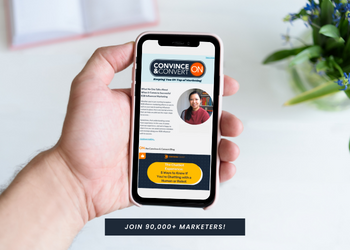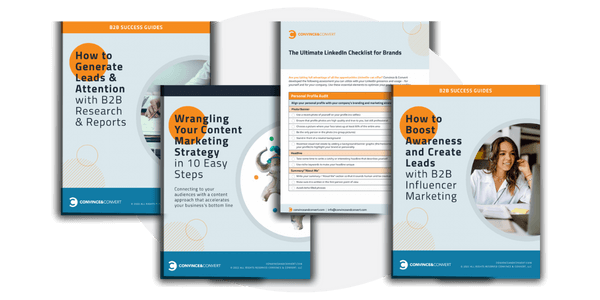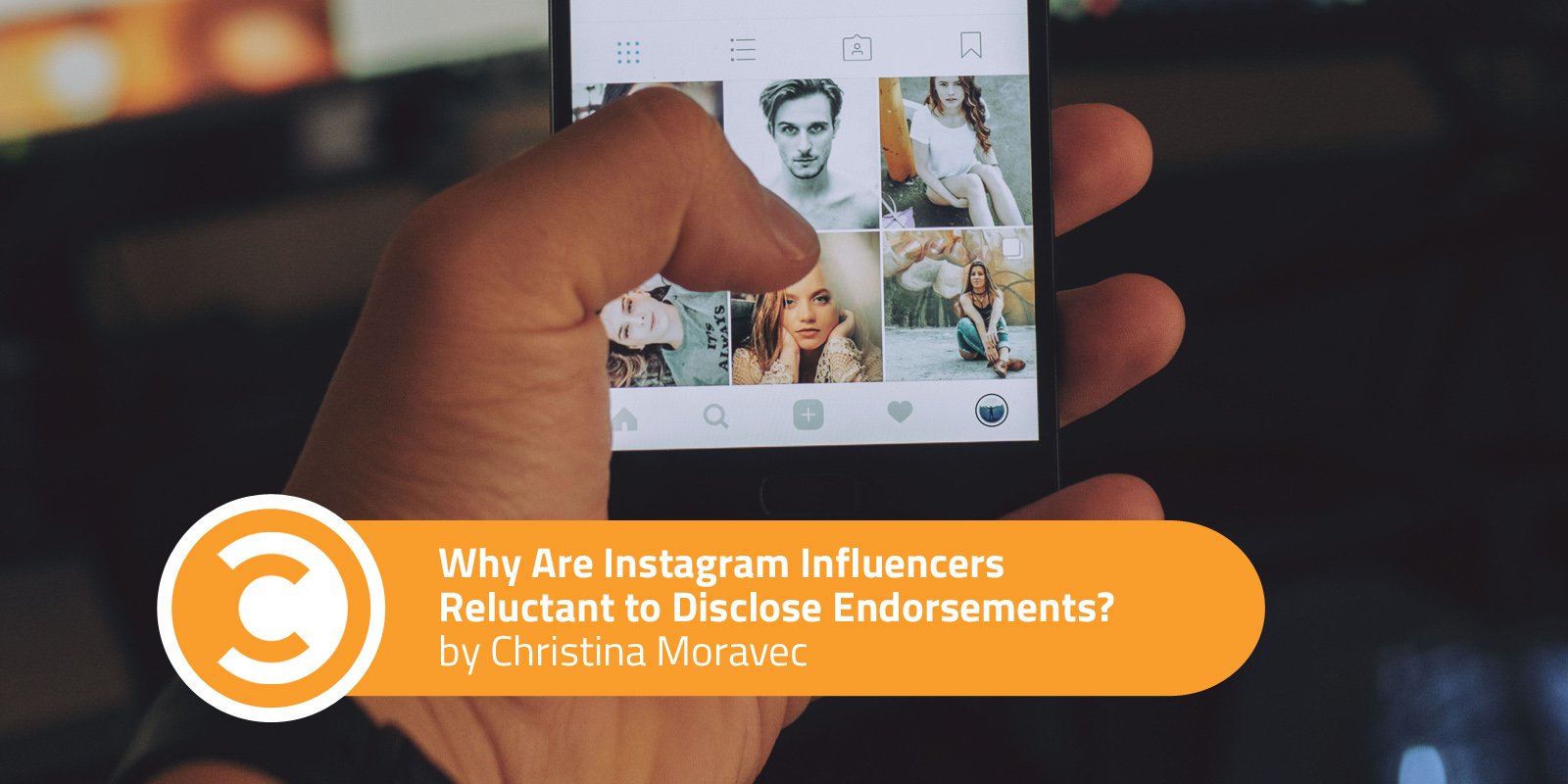
In April, the Federal Trade Council (FTC) gave influencers and marketers a big slap on the wrist by way of more than 90 cease and desists. Apparently, after protecting consumers from deceptive business practices for over 100 years, the FTC didn’t like these modern social media celebrities and their failure to disclose endorsements.
This past year, the good ol’ FTC cracked down on social media platforms for perpetuating secret brand/influencer relationships. Consequently, Instagram launched sponsor tags. Now, influencers must list “Paid sponsorship with brand-name” under their username, ensuring a well-meaning audience member won’t miss a sponsorship (as shown below).
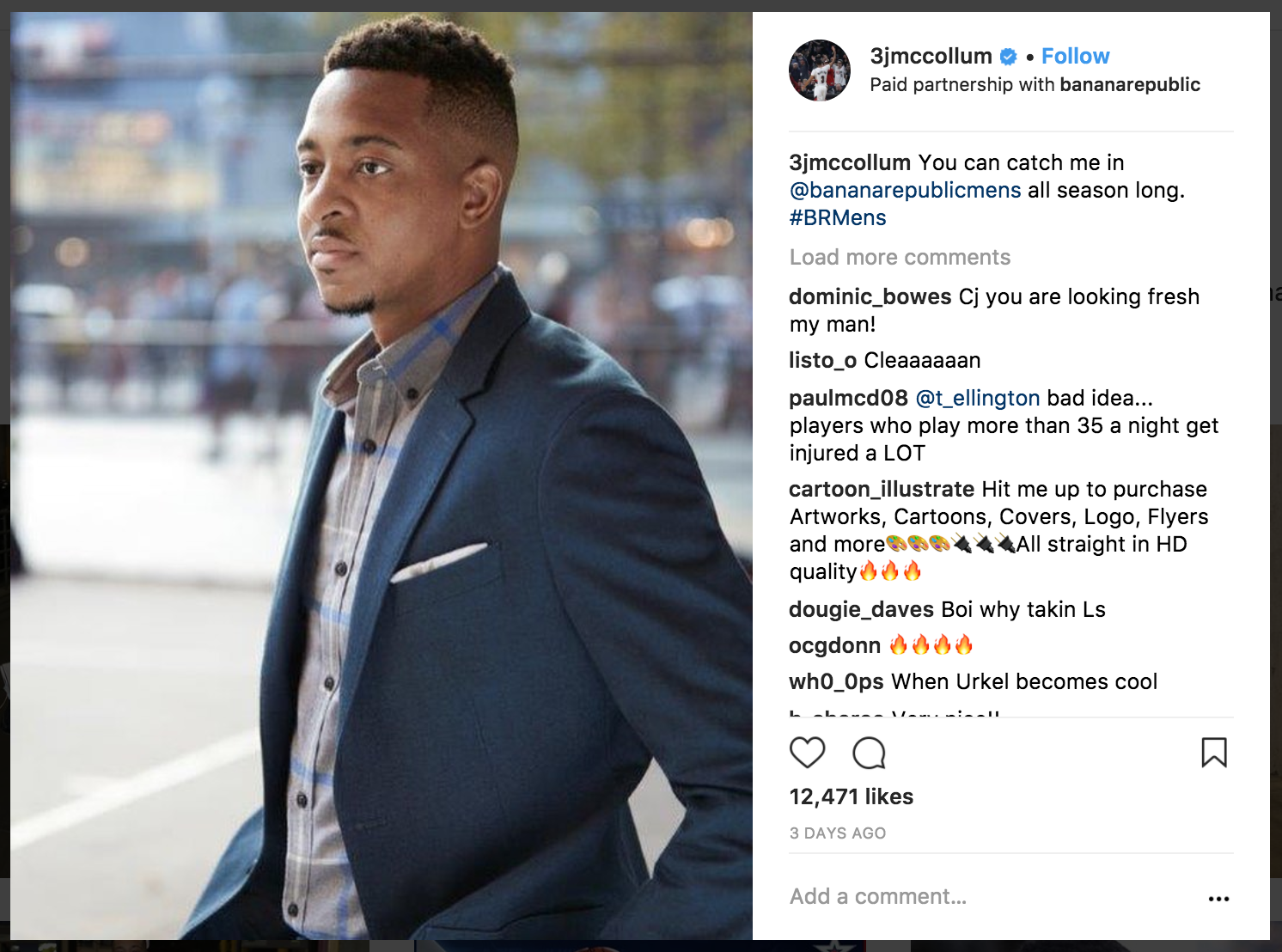
Surprisingly, Instagram’s guidelines for branded content are even stricter than the FTC’s expectations. While the FTC considers posts with captions that contain #ad sufficient in disclosing an endorsement, Instagram requires influencers to disclose commercial relationships through their business partnership tag. In other words, posts that contain #ad but no partnership tag violate the policies set by both Facebook and Instagram.
As Instagram continues building technology that supports e-commerce, you’d expect paid partnership tags to become increasingly prevalent. However, influencers continue to underutilize Instagram’s branded content tool. Take this example, published December 12, 2017:
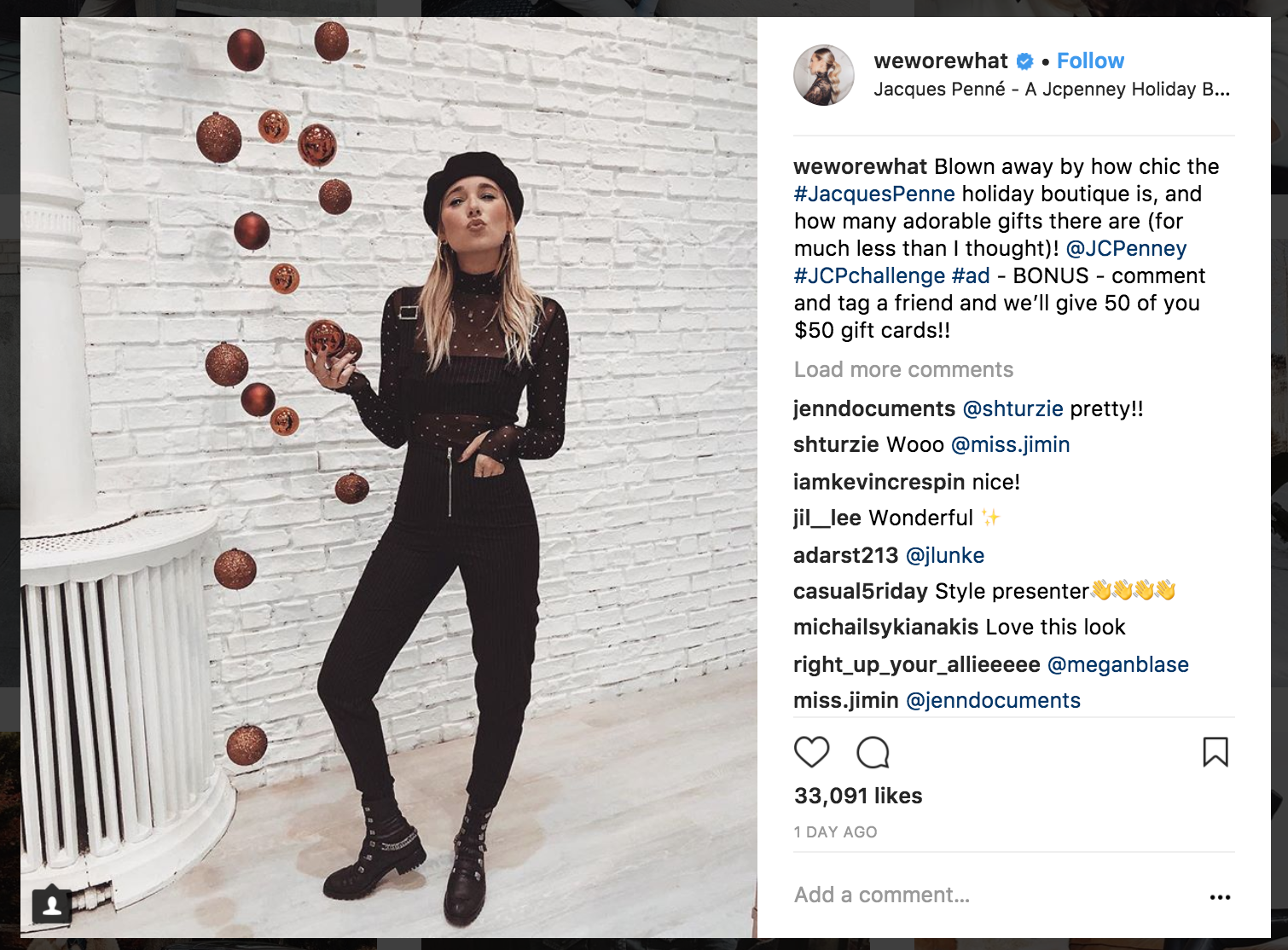
Following the Social Media Transparency Movement of 2017 (coining the phrase now), why are influencers still reluctant to disclose endorsement deals? I have a few theories—please don’t hesitate to provide your own!
- Influencers are not aware of their moral responsibility to inform consumers. (Maybe.)
- They are not sure how to enable the branded content tool. (Meh.)
- They fear that endorsement transparency will hurt their engagement. (Likely.)
- They worry partnership tags will make them seem like money-grabbing sell-outs. (LOL.)
Most likely, influencers’ misguided efforts to preserve audience trust fuel their reluctance to utilize Instagram’s branded content tool. Campaign success is largely contingent on the relationship influencers have built with their audiences. With sponsorship comes a shift in this relationship—for the good, the bad, and the ugly.
The Bad
With paid partnership tags, influencer marketing may not be as effective as it once was.
Non-business-minded consumers don’t always recognize a sponsorship when they see one. Without the correct labels, consumers mistake their trusted influencers’ sponsorships for positive reviews.
In a world where “90 percent of purchasing decisions are influenced by online reviews,” your audience’s ability to recognize the difference between paid endorsements and reviews is of the utmost importance. With the addition of paid partnership tags, audiences know if their beloved Instagram stars are delivering reviews from the heart or from the bank. The latter could be less valuable in terms of building brand trust.
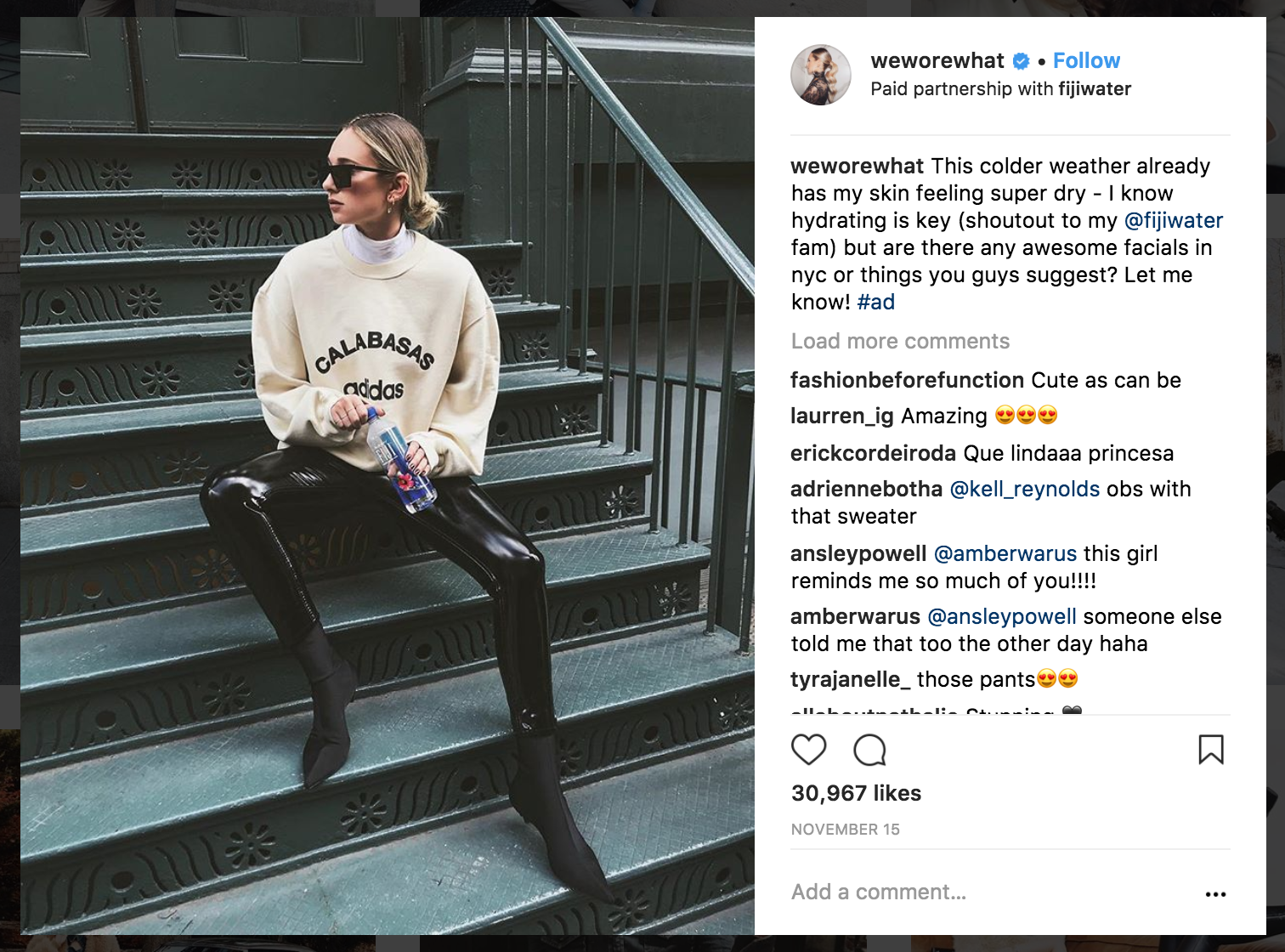
Unfortunately, when it comes to business, advertising and authenticity rarely coexist. With the addition of brand tags on Instagram, influencer marketing just became more honest but much less authentic.
The Ugly
Influencers have surprisingly delicate relationships with their audience. They walk the line between friend and brand. The higher their audience count, the more invincible influencers appear, making them a beacon to all kinds of trolls and haters.
Like celebrities, influencers with huge followings are expected to voice opinions and support causes that reflect the values of their audience. A misstep can result in an irreversible loss of trust and a verbal thrashing. When it becomes apparent that the influencer is turning a profit from their efforts, the scrutiny increases ten-fold.
With sponsorships can come a shift in the influencer’s brand identity. No longer are these famous folks just friends. Now they are opportunists who exploit the trust they’ve built for financial gain. If that sounds dramatic, it is.
Take Facebook influencer imomsohard. With millions of followers, this hilarious duo spotlights humor, friendship, and forgiveness in the long journey of motherhood. Imomsohard’s audience ate up every video they produced—until they sponsored JCPenney.
“I’m bummin’ on this obvious JCPenney commercial. I feel so manipulated and since you guys have to follow a script your obviously not being your true selves,” said one of their audience members. The rest of their audience—a very loyal one—jumped to their defense, but the backlash endured.
Smart brands choose influencers carefully, focusing on the influencers whose audience profiles best match their intended customers. Still, these audiences, who may even be loyal to the sponsor brand, feel betrayed because their trust has been exploited by the influencers. As they say, never mix business and pleasure.
In short, with paid partner tags, marketers can expect decreased engagement because, unfortunately, people still hate ads.
To accumulate the same engagement and reach of authentic posts, marketers will need to put more money into social media ads. Sponsored posts will become more expensive for marketers, as the cost per paid engagement will likely increase. Additionally, to maintain high organic engagement from a trusting audience, influencers may want to limit their promotions and charge brands higher rates.
Brands can combat “the ugly” by focusing on authenticity. When choosing influencers, determine if their audience is your audience, their messaging seamlessly aligns with your brand values, and their content receives appropriate engagement. Choose influencers carefully and produce content thoughtfully. Set aside budget funds to build a healthy paid promotion, earning the reach and engagement your branded content needs.
Audience scrutiny skyrockets once they learn their favorite influencers profit from endorsements. Click To TweetThe Good
I mean, yeah, it’s all doom and gloom for us lowly marketers, but with paid partnership tags, we’ll likely see brand recall increase. Additionally, as consumers become more aware, they will recognize endorsements readily, partnership tag or not. In this way, brand/influencer partnership transparency will do nothing more than build trust, in the way that honesty usually does.
My only questions are these: When will influencers become brave (and/or noble) enough to embrace endorsement transparency? When will customers begin demanding it?
